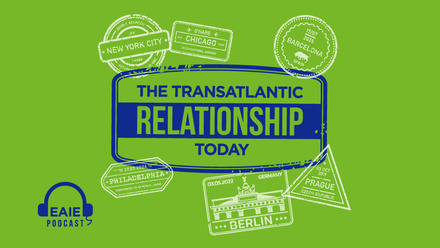Making the most of the UK’s new Turing Scheme

The vast majority of people working in the UK higher education sector did not vote for Brexit, and many of us held onto a glimmer of hope that it might not happen. But, Brexit did come to pass and now we are living with the consequences.
For those of us involved in student mobility, it was always clear that negotiations between the UK and the EU on trade and governance would overshadow the relatively small, but equally important, activities such as student mobility.
Finding the space, mid-pandemic, to bring student mobility to the attention of the politicians was not easy, and here we should gratefully acknowledge the efforts of colleagues at the national agencies, and in particular Universities UK International (UUKi), to do just that. They worked flat out to raise awareness of the importance of student mobility and they helped to map out options.
Getting acquainted with Turing
Indeed, for some time, UUKi engaged as many people as possible in discussions on the pros and cons of a national scheme versus Erasmus. And while they always came down in support of participation in ERASMUS, they set out alternatives (in the hope they would not be required) for a UK-wide scheme that would provide an Erasmus-equivalent number of mobility opportunities for students, would be simple in design, and would purposefully encourage wider participation in mobility.
Turing could fund between 15,000 and 20,000 students, suggesting it could support previous levels of mobility within Europe
When it became clear that the UK’s participation in Erasmus would not continue, the UK Government, at a time when funding is tight and will no doubt become even tighter, made a commitment to fund outward mobility. The new Turing Scheme was formally announced in December 2020 and, as described by the Government, “will be backed by over £100 million, providing funding for around 35,000 students in universities, colleges and schools to go on placements and exchanges overseas, starting in September 2021.”
In terms of higher education, this could mean funding for between 15,000 and 20,000 students. To put that into perspective, in 2018/19 just under 18,000 UK higher education students used the Erasmus scheme. This suggests Turing could support previous levels of mobility within Europe. However, the scheme supports global mobility, so while this is good news for other popular destinations, it may mean less funding used in support of mobility within Europe.
Continued partnership with Europe
That said, European mobility will still benefit from multi-year Erasmus grants, which UK universities will be able to continue to use. And, given that limited mobility has taken place in the last year due to COVID-19, for many universities there will be additional funding in the system both this year and next.
Though we have left Erasmus as a ‘programme’ country, UK universities will be able to receive students and staff under Erasmus as a ‘partner’ country. It is proposed (still to be approved) that European universities can allocate up to 15% of their Erasmus budget for student and staff mobility outside of the European Union and they may elect to use part of that funding for mobility to UK universities.
The UK’s status as a popular, viable study destination will clearly be impacted now that there is limited funding for EU students
However, as with Turing, the Erasmus+ funding can be used worldwide, so they may choose to allocate it to other countries and particularly to other English speaking countries.
Finding our way to reciprocity
The challenge we face is how to continue to offer reciprocal exchange opportunities between the UK and our European partners, and there is still some scope to negotiate terms as a ‘partner country’. There is an opportunity for the UK HEIs and European partners to find ways to make the most of the schemes we can access. This will require bilateral agreements and the long-term success of these agreements will depend on reciprocity.
In terms of the UK remaining a popular, viable study destination, this will clearly be impacted now that there is limited funding for EU students. However, feedback from colleagues in Spain, the Netherlands, Austria and Germany suggests that there will still be demand to come to the UK as long as EU students can continue to access reciprocal tuition exchange. According to one colleague at a Spanish university, “Our approach to keep our agreements and mobility going with the UK is extending our Erasmus with our British partners so as to cover until 2023, while we negotiate bilateral agreements on a non-tuition fee basis beyond that date, with some sort of mobility grant associated.” The Swiss programme (SEMP) will continue to offer mobility funding to students going to and from Switzerland, including to the UK.
Taking the longer view
Beyond 2023, UK universities will still be able to be part of Erasmus Mundus for joint Master’s degrees and to access Jean Monnet Actions for excellence in teaching and research in the field of European Union studies. This is encouraging news.
The Turing Scheme addresses a crucial vacuum. At the same time, like Erasmus, Turing can’t be taken for granted
Still, there is work to be done to make the most of our new reality. On the one hand, it’s important to acknowledge that the Turing Scheme addresses a crucial vacuum. At the same time, like Erasmus, the Turing Scheme can’t be taken for granted. A recent statement from UUKi’s director, Vivienne Stern, succinctly captures these two realities:
For a long time, there was a real risk that, out of Erasmus, there would be nothing to replace it, or that a replacement would be tiny in scale. I also know that, without the glare of the UK-EU negotiations, maintaining political support for investment on this scale will be far from easy, especially if the reaction from our own sector is underwhelming.
The UK’s exit from the EU has been painful, and losing out on participation in Erasmus is something I hoped we could avoid. Now, our new situation requires us to be creative and build on the links we have forged over many years.
We don’t always get what we want, but I am convinced that, with creativity and purpose, we can grow into this new situation and make the best of what we have.






